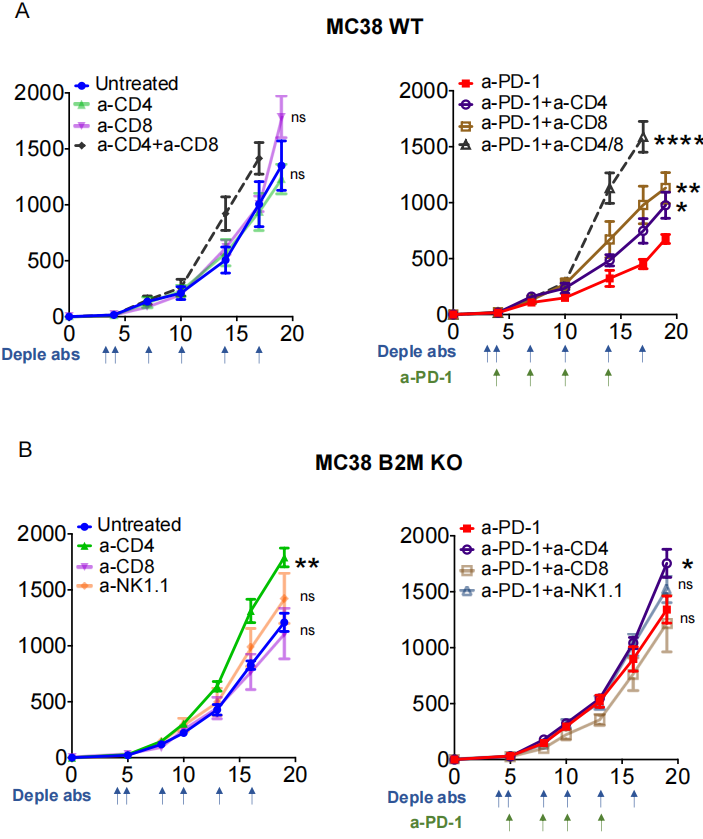β2-microglobulin (B2M) is an important component of MHC class I molecules that can present tumor antigens to T cells. Loss of B2M leads to acquired tumor resistance to immune checkpoint blockade (ICB) therapy. However, there are now well-documented cases of B2M-inactivated tumors responding to ICB, which may demonstrate how the body's anti-tumor immune response is generated in tumors that do not have MCH class I molecules on their cell surfaces.
View all immune checkpoint stable cell lines
Recently, in a research report titled "Antitumor Immune Responses in B2M-Deficient Cancers" published in the international magazine Cancer Immunology Research, scientists from UCLA Jonsson Comprehensive Cancer Center and other institutions have discovered that certain immune cells can still fight off cancer even if the cancer cells lack important proteins that the host immune system relies on to help track cancer cells. The researchers found that in animal studies and biopsies from patient tumors, loss of the key protein B2M appeared to activate alternative immune responses involving natural killer cells (NK cells) and CD4+ T cells. This suggests that there may be a potential backup mechanism in the body's immune system to recognize and attack cancer cells.

Figure 1. Immune cell subsets inducing antitumor responses in MC38 with and without B2M expression.
Immunotherapies such as immune checkpoint blockade often rely heavily on the reactivation of CD8+ T cells, which can recognize tumor antigens through specific molecules on the surface of cancer cells. B2M proteins play a key role in this process, helping CD8+ T cells recognize cancer cells. However, the researchers noticed that in some patients whose B2M proteins were missing or significantly reduced, their cancers were still able to respond aggressively to immune checkpoint tissue. To better understand this, the researchers used CRISPR/Cas9 to edit the genes of mice with melanoma to lose the B2M protein, similar to how some cancer cells lose it. It was found that when these mice were treated with immunotherapy, immune cells, especially CD4+ T cells and NK cells, were still able to continue to fight cancer.
Similarly, researchers found in a large cohort of melanoma patients that tumors lacking appropriate B2M often showed an increase in activated NK cells. This suggests that when universal recognition markers are missing, these cells can play an important role in fighting cancer. The researchers note that the immune system is still able to defend against certain cancers, such as melanoma, even if it lacks B2M, thus making CD8+ T cells less effective. Understanding these mechanisms may help researchers develop effective combination cancer immunotherapies.
View all gene knockout stable cell lines
"The unexpected key role of NK cells and CD4+ T cells may be another way the immune system defends against certain types of tumors with the help of immune checkpoint blockade drugs", researcher Dr. Mildred Galvez said. This study is another example of how we naturally use the body's immune system to figure out which players we need to retarget cancer.
Taken together, the results of this study indicate that in the absence of B2M, CD4+ T cells and NK cells can mediate the response of the mouse model to PD-1 blockade therapy. Furthermore, in human melanoma, when B2M is partially lost, the presence of activated NK cells within the tumor may prevent tumor escape through lower expression of surface MHC class I molecules.
Reference
Torrejon D Y, et al. Antitumor Immune Responses in B2M-Deficient Cancers. Cancer Immunology Research, 2023, 11(12): 1642-1655.

